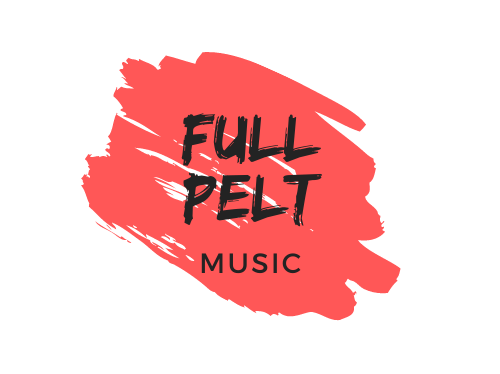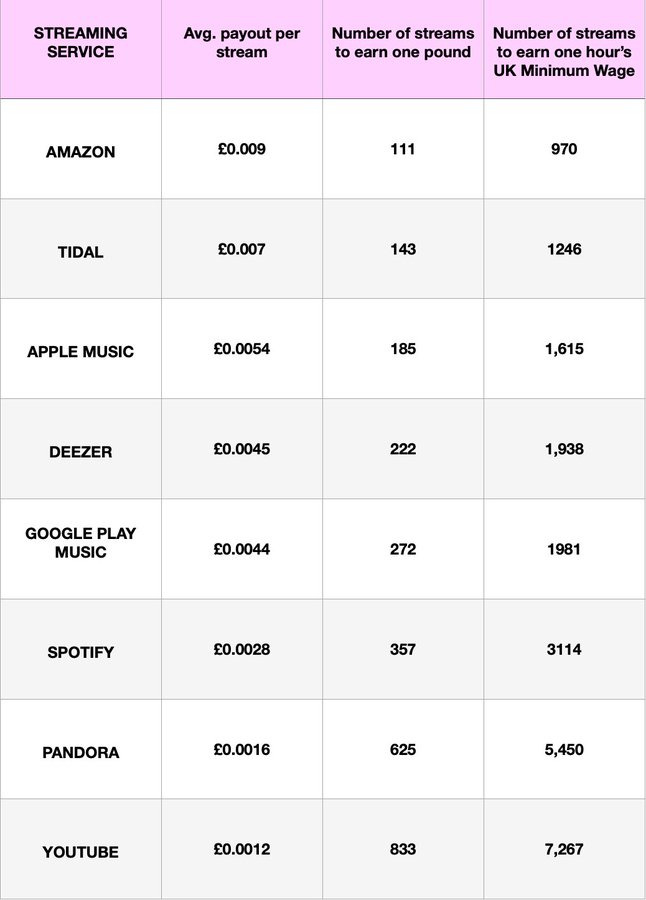
Follow us on Social Media
As Blossoms strode onto stage in Liverpool’s Sefton Park in front of 5,000 non-socially distanced fans, the UK was reminded of just what it had been missing. The music loving island that has played a key role in the formation of the music industry as we know it, was shown again just what was at stake!
The aim of the gig which also saw The Lathums and Zuzu play to an audience starved of live music for over a year was to establish a safe route back for the music industry. Now, let’s consider something. We all love music, we all love live music and by default we all love the music industry. We naturally want to see it return as we remember it. You know from before the c-word, before the world stood still.
Where is improvement needed?
Here however is what we need to consider. Should the industry be allowed to return just as it was? Again, we all love music, that’s no doubt why you are reading this article! But, if we take even a cursory glance back then it should be clear that the industry was far from perfect. There were and still are many issues within the industry that need to be addressed. Thankfully there are many great groups and organisations working to advocate change and force improvement.
The most important step that we all must take now is the realisation that the industry isn’t perfect and that only by all aspects of the industry working together can positive change be installed. We want to do a small but important thing with this article, and that is raise awareness.
Since the inception of Full Pelt Music at the turn of the year, we have already written about a handful of subjects. We spoke early on about the relationship between music and our mental health in our blog ‘Mental Health, Music and Me’.
We have also addressed the plight of our grassroots music venues in our blog ‘Why We Need To #SaveOurVenues’; and we looked at the impact of music streaming in our blog ‘Why We Need To Fix Our #BrokenRecord Industry’. We won’t repeat ourselves here, but encourage you to take the time to read these articles.
How does change happen?
As we said, there are many aspects of the industry that need to be improved. Whilst the pandemic has had ruinous effects on the industry it has provided an opportunity to make these changes. If not now, then when?
As we return to music, we also need to rebuild the music industry. We need to actively embrace diversity and equality. This goes deeper than simply the percentage of female performers on a festival bill, although of course that is a metric which highlights the current disparity well. This requires more than social media campaigns highlighting racial inequality and abuse.
The work needs to happen at the grassroots level but needs the mainstream to lead by example. Youth programmes that aim to educate and nurture are vital, but action from the top is essential; one example being the need for tough action from social media companies.
The Government and the various regulatory authorities need to up their game as well. Actions speak louder than words, and if the pandemic has taught us anything it’s that the financial support for the industry and from the top of the industry has been too little and too late. Any support has also often bypassed those most in need.
Yes, we have faced an unprecedented situation that has devastated many industries, but the music industry has had a unique opportunity to improve. Let’s look at accessibility. With music venues closed, what better time has there been for remedial work to take place which provides greater access for deaf and disabled people to live music.
The problem has again been the lack of support and funding from those with the power to facilitate this change. With music venues, particularly independent ones, on their financial knees they can’t be vilified for not taking action. Better foresight and ambition from Government however could have seized an unwanted but ideal opportunity.
What’s the answer?
In writing this article we certainly don’t purport to have all the answers. We don’t even assume to know all the barriers to change. All we want to do is continue many conversations that are being held by organisations and individuals far more knowledgeable and industrious than us.
It is time for change. Because if not now, when? Thankfully there are many groups actively striving for this change and making a difference now. What they need is our support. With that in mind, we want to draw your attention to just a handful of these organisations. There are many more out there doing fantastic work.
Now is the time to speak up, help advocate the change required for our beloved industry to return better than ever. To return with a safe and positive environment for all!
MUSIC VENUE TRUST
THEIR MISSION
Below excerpt from Music Venue Trust
Music Venue Trust is a UK registered charity which acts to protect, secure and improve Grassroots Music Venues.
Created in January 2014, we aim to secure the long-term future of iconic Grassroots Music Venues such as Hull Adelphi, Exeter Cavern, Southampton Joiners, The 100 Club, Band on the Wall, Tunbridge Wells Forum etc.
These venues have played a crucial role in the development of British music over the last 40 years, nurturing local talent, providing a platform for artists to build their careers and develop their music and their performance skills.
We work to gain recognition of the essential role these venues fulfil, not only for artist development but also for the cultural and music industries, the economy and local communities. We aim to preserve and improve venues, making them more efficient and improving the experience for performers and audiences. Long-term we plan to acquire the freeholds of as many of these vital venues as possible.
ATTITUDE IS EVERYTHING
THEIR MISSION
Below excerpt from Attitude is Everything
The future we want to see…
Deaf and Disabled People can be audience members, employees or artists at any live music event of their choice: music without barriers.
What we’re doing to make that future a reality…
Attitude is Everything works in partnership with audiences, artists and the music industry to improve Deaf and disabled people’s access to live music.
Our aims:
- increase the number of Deaf and disabled people participating in music
- raise awareness of the barriers that Deaf and disabled people face at live music events, and to demonstrate how to overcome them
- show and highlight Best Practice in access, and set an example to those we wish to influence
- develop the skills and confidence of Deaf and disabled people so that they can better engage with the music industry
SAFE GIGS FOR WOMEN
THEIR MISSION
Below excerpt from Safe Gigs for Women
Safe gigs for women is an initiative established by regular gig goers with the aim of creating a safer environment for women at gigs. Our aims are:
Gig goers
Work with gig goers to spread the word that it is not okay to grope, threaten or harass others. Encourage victims to speak out, and supporters to advocate that this behaviour will not be tolerated
Venues
Work with venues to ensure they take reports of sexual harassment and other threats to women seriously. We will work with venues to create a standard in the industry for safe venues. We will then campaign to get the standard adopted nationwide.
Bands
Getting bands on board to recognise our standards, talk about our work and get their audiences recognising and spreading what is acceptable.
NICK ALEXANDER MEMORIAL TRUST
THEIR MISSION
Below excerpt from Nick Alexander Memorial Trust
The Nick Alexander Memorial Trust award grants for musical equipment to community groups and small charities across the UK, particularly those representing the most disadvantaged and marginalised sectors of society, be that through poverty, physical or mental illness, disability, ethnicity or age.
JOE STRUMMER FOUNDATION
THEIR MISSION
Below excerpt from Joe Strummer Foundation
Our mission is to provide opportunities to musicians and support to projects around the world that create empowerment through music.
Our objectives are specifically:
- The prevention or relief of poverty, particularly of young people, anywhere in the world by providing: grants, items and services to individuals in need and/or charities, or other organisations working to prevent or relieve poverty.
- To promote, improve, develop and maintain the education of the public in the art, culture and science of music in all its aspects for the public benefit, in particular young musicians, including by the provision of funds for the purchase of musical instruments and studio rehearsal.
- To promote, improve and advance the arts, including music, for the public benefit including by the presentation of exhibitions, public events and concerts.
SOPHIE LANCASTER FOUNDATION
THEIR MISSION
Below excerpt from Sophie Lancaster Foundation
The aims and objectives of the Charity are as follows:
Create a lasting legacy to Sophie
Provide educational group-works that will challenge the prejudice and intolerance towards people from alternative subcultures
Campaign to have the UK Hate Crime legislation extended to include people from alternative subcultures
WE ARE HUMMINGBIRD
Below Excerpt from We Are Hummingbird
We are Hummingbird is a non-profit Mental Health awareness organisation. We are a community of music lovers who have united to spread awareness of mental health by using music as a platform to encourage people to open up and engage in conversation.
The above are just a very small selection of charities, organisations, groups and individuals that are fighting the good fight. Take some time out to research causes close to your heart and get involved to make our industry a better place.
Share this article on Social Media
Read our latest weekly music news roundup in our News Report


